##24/7 VALENCIA: Could you tell us in detail about your detective book set in Valencia, ‘Blood Med’?
JASON WEBSTER:It is the fourth in the Chief Inspector Max Cámara series, and it takes a hard look at the economic crisis in Spain and the powerful effect it is having on society. Hospitals are understaffed and running out of money, while food banks have sprung up at various places in Valencia, most notably in a stretch of the unfinished Metro line near the centre. Max is involved in two cases, one involving the murder of an American blogger married to a Valencian man, and as it unravels, he exposes some of the high-level corruption that has done so much to bring the city to its knees.
Why does Valencia have such a bad reputation for corruption?
Simply because so much of the corruption in Spain has been in Valencia. Are Valencians more prone to corruption than other Spaniards? Possibly not, but low-level corruption is a part of everyday life, and I think all Spaniards have to recognise and accept this. The reason why so many corrupt politicians kept getting voted back into office was because a lot of people had a grudging respect for them. “I’d do the same if I was in their position,” they would say. There still are voters like that, but the good thing about scandals is that Spaniards eventually wake up to the fact that when a politician steals public money, it isn’t cash from the sky, it’s money that pays for hospitals and schools, etc., so the politicians are actually robbing them. Hopefully that mind-shift will mean the levels of theft seen in the past become less common. But to an extent it requires the whole society to put its hand up and say mea culpa.
You studied Arabic at Oxford and you wrote ‘Andalus: Unlocking the Secrets of Moorish Spain’. What is the future for Islam in multi-cultural Europe?
My hope is that Islam and the West will have as long and fruitful relationship together as possible. The meetings of their respective cultures have brought enormous benefits for the whole of humankind over the course of history. It became generally recognised in the West that we owe an enormous amount to the injection of ideas — intellectual, agricultural, artistic, architectural — from the Islamic world into Europe in the Middle Ages, principally through Spain, but also through Sicily and the Crusader states as well. So much — from the food we eat to the clothes we wear, the numbers we use, the games we play and even the rational thinking that we take so much for granted — would be unimaginable without that crossover. But extremists of all colours sometimes gain ground; the lunatics in danger of taking over the asylum, and so I think it is more important than ever for the sensible, moderate thinkers to fly their flags and state their case as strongly as possible. Not least because once a shift to the extremes gains a certain momentum, it can be difficult to stop. We need to calm ourselves, to laugh at ourselves more, and try to be more understanding.
What is your view concerning freedom of expression and freedom of thought as a writer?
Freedom of thought is fundamentally important, but the pressures to think in certain ways can be quite subtle. Just because one lives in a society where freedom of expression is allowed doesn’t mean that everyone has their own ideas. Quite the reverse, sometimes. Just listen to the clichés that come out of all of our mouths: working out what we really believe or think about something can take time and a certain kind of special effort. Which means it’s often easier to repeat what the crowd around us is saying. Today we have turned freedom of expression into a kind of sacred cow, but is anyone asking how much freedom we really have? Drawing cartoons of the Prophet Muhammad has a rather macho feel about it, and I’m not certain it actually achieves anything. Personally, I think the real threats to freedom of expression come from the ridicule or the silence with which societies deal with ideas that make them feel uncomfortable. That’s far more effective as a form of censorship than bullets or draconian laws.
How have you and your Spanish family adapted to life in England after life in Valencia?
We still maintain a property near Valencia and spend time in the area, so I don’t consider myself to have left the city, really. It also works fine when we spend time in England.
Want to tell us about any other book you’ve written?
The fifth novel in the Max Cámara series, ‘A Body in Barcelona’, centres in large part on the Catalan situation — less the moves by Barcelona to break away from Spain, but more the attempts by certain centralist forces to prevent Catalonia from becoming independent. Action takes place in Valencia, of course, but also in Ceuta and Barcelona. It is a big and complicated (and explosive) case for Max, and at the same time he’s struggling with the impact the previous investigation had on his relationship with Alicia, and also questions about how his group of anarchist friends should respond to the continuing social and economic problems the country is facing. There will be more, so I should probably stop here and get on with them …
Interview by 24/7 Valencia team
More info: https://www.jasonwebster.net
Related Post
This site uses Akismet to reduce spam. Learn how your comment data is processed.


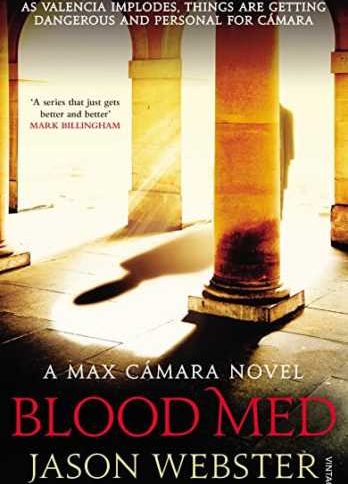
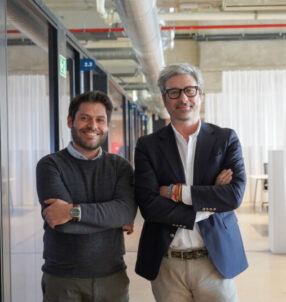

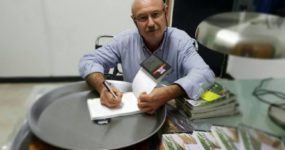
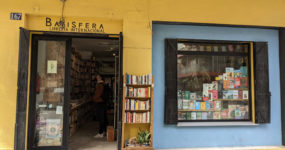
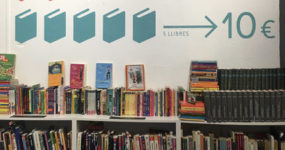


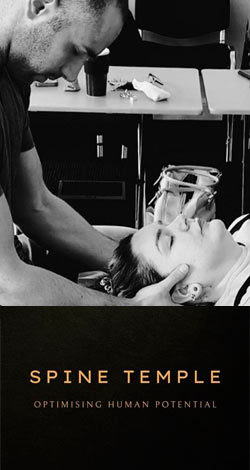















Leave a comment